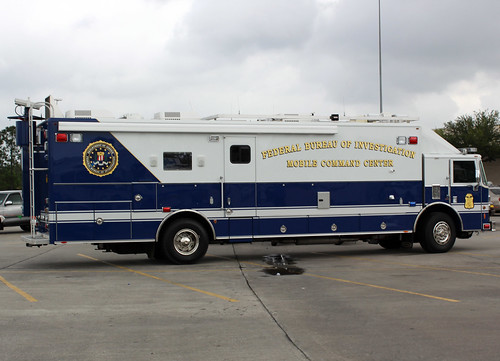The seat of government of the United States is in Washington, D.C., a geographical area that is not located within any state. This has led to "Washington" commonly being used as a metonym for the U.S. federal government.
The United States government as outlined in the Constitution is based on the principle of federalism, in which power is shared between the federal government and state governments. The details of American federalism, including what powers the federal government should have and how those powers can be exercised, have been debated ever since the adoption of the Constitution. Some make the case for expansive federal powers while others argue for a more limited role for the central government in relation to individuals, the states or other recognized entities.
Since the U.S. Civil War, the powers of the federal government have generally expanded greatly, although there have been periods since that time of legislative branch dominance (e.g., the decades immediately following the Civil War) or when states' rights proponents have succeeded in limiting federal power through legislative action, executive prerogative or by constitutional interpretation by the courts.
One of the theoretical pillars of the United States Constitution is the idea of "checks and balances" among the powers and responsibilities of the three branches of American government: the executive, the legislative and the judiciary. For example, while the Congress (legislative) has the power to create law, the executive (President) can veto any legislation -- an act which, in turn, can be overridden by Congress. The President nominates judges to the nation's highest judiciary authority (The Supreme Court), but those nominees must be approved by Congress. The Supreme Court, in its turn, has the power to invalidate as "unconstitutional" any law passed by the Congress. These and other examples are examined in more detail in the text below.
The United States Congress is the legislative branch of the federal government. It is bicameral, comprising the House of Representatives and the Senate.
The Constitution grants numerous powers to Congress. Enumerated in Article I, Section 8, these include the powers to levy and collect taxes; to coin money and regulate its value; provide for punishment for counterfeiting; establish post offices and roads, promote progress of science by issuing patents, create federal courts inferior to the Supreme Court, combat piracies and felonies, declare war, raise and support armies, provide and maintain a navy, make rules for the regulation of land and naval forces, provide for, arm and discipline the militia, exercise exclusive legislation in the District of Columbia, and to make laws necessary to properly execute powers. Over the two centuries since the United States was formed, many disputes have arisen over the limits on the powers of the federal government. These disputes have often been the subject of lawsuits that have ultimately been decided by the United States Supreme Court.
The House currently consists of 435 voting members, each of whom represents a congressional district. The number of representatives each state has in the House is based on each state's population as determined in the most recent United States Census. All 435 representatives serve a two-year term. Each state receives a minimum of one representative in the House. In order to be elected as a representative, an individual must be at least 25 years of age, and must have been a U.S. citizen for at least seven years. There is no limit on the number of terms a representative may serve. In addition to the 435 voting members, there are six non-voting members, consisting of five delegates and one resident commissioner. There is one delegate each from the District of Columbia, Guam, Virgin Islands, American Samoa and the Commonwealth of the Northern Mariana Islands, and the resident commissioner from Puerto Rico. In contrast the Senate is made up of two senators from each state, regardless of population. There is currently a total of 100 senators (two from each of the 50 states), who each serve six-year terms. Approximately one third of the Senate stands for election every two years. The House and Senate each have particular exclusive powers. For example, the Senate must approve (give "advice and consent" to) many important Presidential appointments, including cabinet officers, federal judges (including nominees to the Supreme Court), department secretaries (heads of federal executive branch departments), U.S. military and naval officers, and ambassadors to foreign countries. All legislative bills for the purpose of raising revenue must originate in the House of Representatives. The approval of both chambers is required to pass any legislation, which then may only become law by being signed by the President (or, if the President vetoes the bill, both houses of Congress then re-pass the bill, but by a two-thirds majority of each chamber, in which case the bill becomes law without the President's signature). The powers of Congress are limited to those enumerated in the Constitution; all other powers are reserved to the states and the people. The Constitution also includes the "Necessary and Proper Clause", which grants Congress the power to "make all laws which shall be necessary and proper for carrying into execution the foregoing powers." Members of the House and Senate are elected by first-past-the-post voting in every state except Louisiana and Washington, which have runoffs.
The United States government as outlined in the Constitution is based on the principle of federalism, in which power is shared between the federal government and state governments. The details of American federalism, including what powers the federal government should have and how those powers can be exercised, have been debated ever since the adoption of the Constitution. Some make the case for expansive federal powers while others argue for a more limited role for the central government in relation to individuals, the states or other recognized entities.
Since the U.S. Civil War, the powers of the federal government have generally expanded greatly, although there have been periods since that time of legislative branch dominance (e.g., the decades immediately following the Civil War) or when states' rights proponents have succeeded in limiting federal power through legislative action, executive prerogative or by constitutional interpretation by the courts.
 Federal Bureau of |  Federal Bureau | Investigation (FBI) |  U.S. Federal Bureau of |  The Federal Bureau of |
 Federal Bureau of |  bureau of investigation\x26#39; |  FBI (United States Federal |  Federal Bureau |  Federal Bureau of |
The Constitution grants numerous powers to Congress. Enumerated in Article I, Section 8, these include the powers to levy and collect taxes; to coin money and regulate its value; provide for punishment for counterfeiting; establish post offices and roads, promote progress of science by issuing patents, create federal courts inferior to the Supreme Court, combat piracies and felonies, declare war, raise and support armies, provide and maintain a navy, make rules for the regulation of land and naval forces, provide for, arm and discipline the militia, exercise exclusive legislation in the District of Columbia, and to make laws necessary to properly execute powers. Over the two centuries since the United States was formed, many disputes have arisen over the limits on the powers of the federal government. These disputes have often been the subject of lawsuits that have ultimately been decided by the United States Supreme Court.
 the Federal Bureau of |  The Federal Bureau of |  download Federal Bureau Of |  The Federal Bureau of |  FBI Director Robert Mueller |
 Ice Hockey News. The Federal |  Federal Bureau of |  Federal Bureau of |  CRB. A picture taken from |  the U.S. Federal Bureau of |
No comments:
Post a Comment